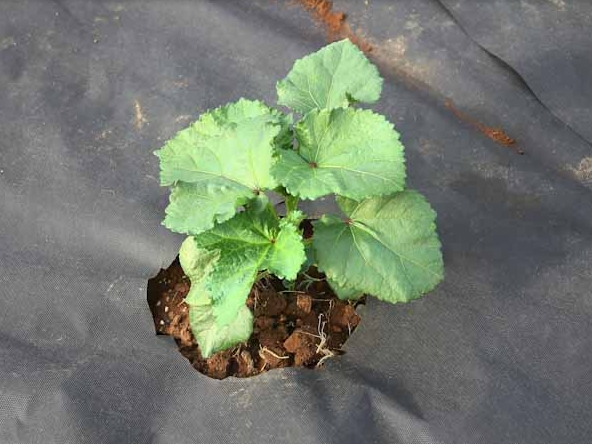PP (Polypropylene) agricultural nonwoven fabric is a synthetic material widely used in the agricultural sector, known for its durability, versatility, and effectiveness in various applications.
Key Features
- Breathability:
- Allows air and moisture to pass through, promoting healthy plant growth while protecting against harsh environmental conditions.
- UV Resistance:
- Often treated to resist ultraviolet rays, ensuring longevity when exposed to sunlight.
- Water Retention:
- Helps retain soil moisture, reducing the need for frequent watering, which can be especially beneficial in arid regions.
- Lightweight:
- Easy to handle and install, making it a practical choice for farmers and gardeners.
- Chemical Resistance:
- Resistant to many chemicals, making it suitable for use in various agricultural environments.
Applications
- Crop Protection:
- Used as row covers or plant blankets to shield crops from frost, pests, and extreme weather conditions.
- Weed Control:
- Acts as a barrier to suppress weed growth while allowing water and nutrients to reach the soil.
- Mulching:
- Employed as a mulch film to retain soil moisture, control weeds, and stabilize soil temperature.
- Greenhouse Linings:
- Utilized in greenhouses to enhance light diffusion and prevent pest intrusion, creating an optimal growing environment.
- Soil Erosion Control:
- Used in erosion control blankets to stabilize soil and reduce sediment runoff in vulnerable areas.
- Seedling Germination:
- Provides a favorable environment for seedling germination by retaining warmth and moisture.
Benefits
- Cost-Effective: Generally less expensive than other protective coverings, making it accessible for various farming operations.
- Sustainable Options: Some manufacturers offer biodegradable or recyclable alternatives, appealing to environmentally conscious farmers.
- Versatility: Suitable for a wide range of crops and agricultural practices.
Challenges
- Durability Concerns:
- While PP nonwoven fabric is strong, it may degrade over time with prolonged exposure to harsh environmental conditions if not treated properly.
- Market Competition:
- Competes with other materials like woven fabrics and biodegradable options, which may offer specific advantages for certain applications.
- Environmental Impact:
- Although PP is recyclable, concerns remain regarding the environmental impact of plastic usage in agriculture.
Conclusion
PP agricultural nonwoven fabric is an essential component in modern farming practices, offering numerous benefits for crop protection, weed control, and soil management. Its lightweight and breathable nature makes it a popular choice among farmers. As sustainability becomes increasingly important, the development of eco-friendly alternatives will likely shape the future of this market, ensuring that PP nonwoven fabric remains a vital tool in agriculture.
Post time: Feb-14-2025

